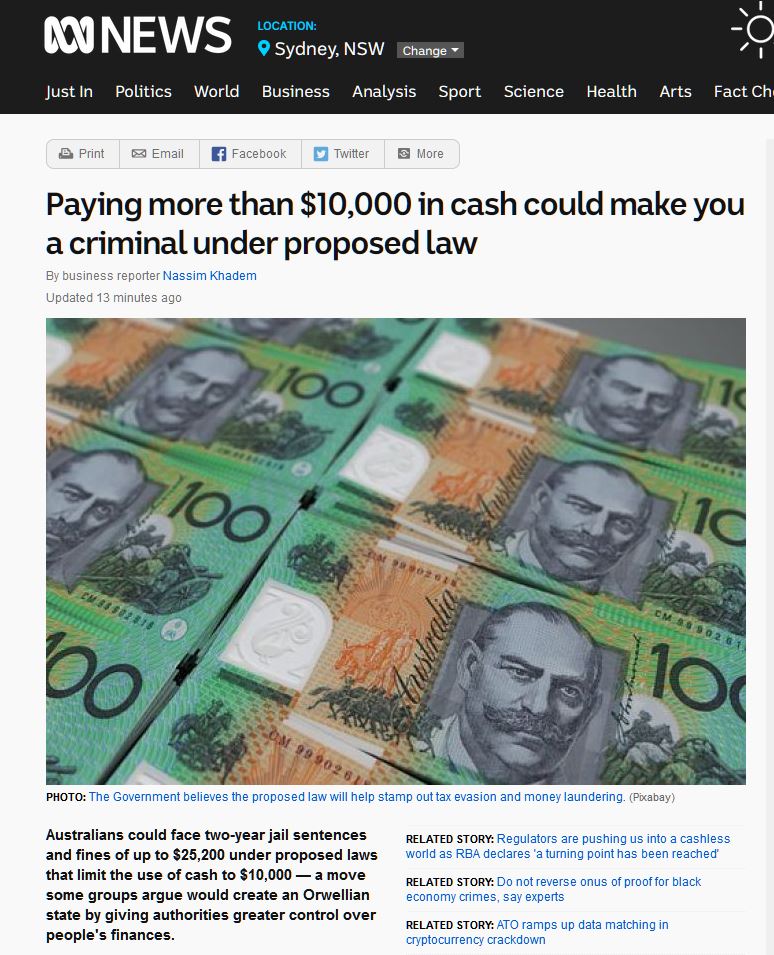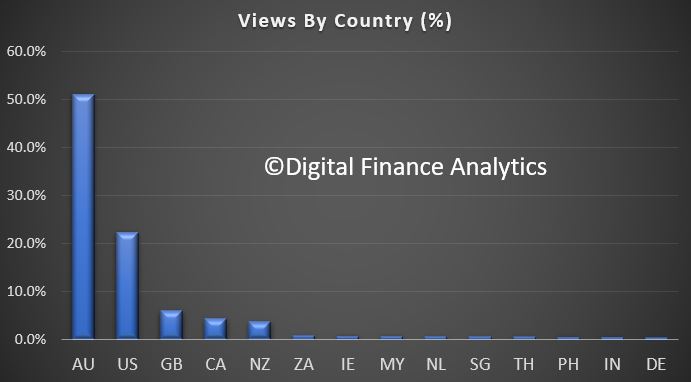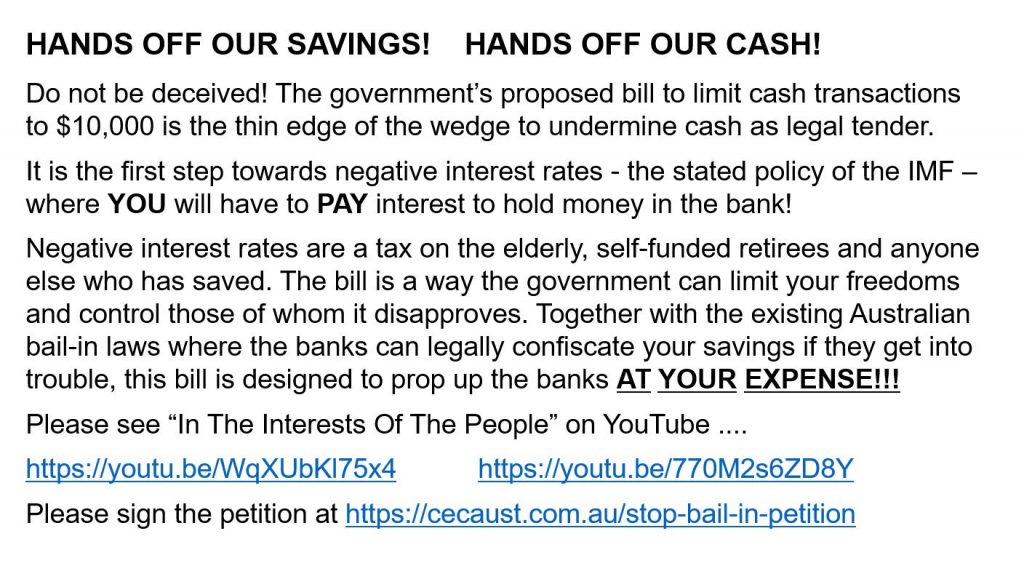The ABC have written a piece on the proposed cash restrictions (even if it was after the closing date for submissions to Treasury relating to the exposure draft). It appears opposition is mounting, given they cite One Nation, CPA Australia, The Institute of Public Affairs and The Australian Chamber of Commerce. However, Chartered Accountants Australia and New Zealand argued the $10,000 cash limit was high, and needed to be lowered.

Australians could face two-year jail sentences and fines of up to $25,200 under proposed laws that limit the use of cash to $10,000 — a move some groups argue would create an Orwellian state by giving authorities greater control over people’s finances.
Key points:
- The proposed law would apply to all payments of more than $10,000 to a business with an ABN, such as buying a car from a car yard
- Private transactions between individuals with no ABN would be exempt from the new rules
- One Nation has indicated it will vote against the bill, as some business groups argue it is an attack on the basic liberty of free exchange
A number of stakeholders have called on the Federal Government to withdraw the proposed laws, which were first announced in the 2018-19 budget as part of measures to fight the so-called black economy.
The Government’s Black Economy Taskforce had argued a $10,000 cash limit for transactions between businesses and individuals would help fight the cash economy by stamping out tax evasion, money laundering and other crimes.
But some groups fear the laws could give the banks, which have faced much scrutiny under the banking royal commission, too much control over people’s money.
The laws would apply to all payments made to businesses with an ABN for goods or services, affecting major purchases like cars, boats, housing and building renovations.
The Government has said the measure would not apply to individual-to-individual transactions, such as private sales where the seller does not have an ABN, or cash payments to financial institutions.
The laws, if passed, would take force on January 1, 2020, and for certain AUSTRAC reporting entities from January 1, 2021.



